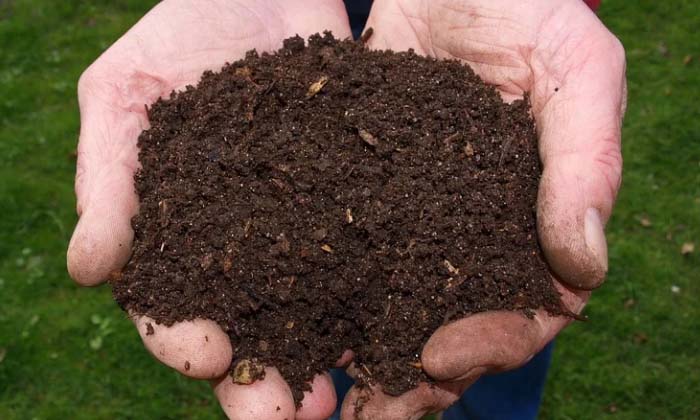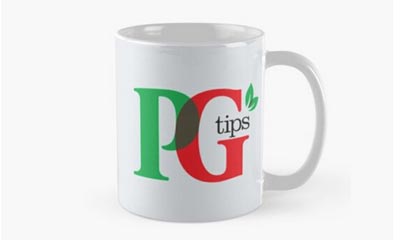What waste can you compost?
You will be surprised just how much of your everyday household waste can be utilised to make wonderful nutrient dense compost. Compost heaps are made up of two components green waste and brown waste. Up to 50% of household waste can be turned into compost, by doing so you are making a big reduction on how much organic waste goes to landfill sites. This waste as it decomposes produces methane gas that contributes to global warming.
The green waste contains nitrogen and the brown waste carbon, the combination of the two makes a compost that is rich in humus, which your plants will love. It also helps to regulate your soil's pH balance and prevents disease and lays a rich bed with essential elements such as, nitrogen, phosphorus, and potassium that promotes healthy growth.
Compost needs a mixture of green and brown waste products, the green waste breaks down quickly and provides moisture, whereas the brown waste takes a little longer to break down and provides the roughage. Overall, a batch of homemade compost can take between 9-12 months to make, so you do need to be committed to the project.
How to Compost at Home.
Composting at home is a lot easier than you may think. There are a couple of different techniques. If you have the space, you can literally set a compost heap at the back of your garden. All you need to get started is some tarpaulin to cover it with.
To get started with a compost heap, first select an area of your garden that is a bit secluded as the compost heap can get a bit messy and you don't want it to get in the way of people using the garden. The back of the garden works well, lay down some twigs, scrap paper, and a small amount of compost, as a base.
FACT: 97% of UK households don't compost! When asked why they don't compost, even though local council facilities exist, most people said 'Lack of Time' or 'Lack of Motivation' was the main reason. Others said it's because they don't have a garden or lack gardening skills.
Then add your waste and a little bit of water. Make sure that you give it a good stir and then keep adding waste and stirring it with a pitchfork every couple of weeks. Stir a bit more frequently if the weather is hot. Secure the heap with your tarpaulin to keep the moisture and heat doing their job and break down the waste.
The great thing about the compost heap is, you don't need much to get going and as it is on the ground the worms and bugs will love living inside and help break down the waste faster and aerates the mulch, which also assists the process.
What equipment do you need to compost at home?
If the heap is not going to work in your outdoor space, then invest in a Large Garden Composter Bin . They cost around £30-40 and are good at keeping all your compost self-contained that will reduce the odour as well as keep out the inquisitive foxes from sniffing around.
These bins are designed to produce warmth and moisture and as they have lids keep everything humming inside nicely. They are also far better at keeping the rain from turning your heap into a swamp. Like with the heap, add your 50/50 mix of green and brown waste, dump in the bin with some readymade compost and stir regularly with a good quality pitchfork. I like to use Fiskars Ergonomic Standard Fork as they are strong and sturdy.
Check with your local council as many offer discounted Compost Bins that you can buy directly from them at a reduced price. Prices vary but the London borough of Campden sells them for as little as £5.00, this all goes towards less landfill waste from their residents.
What you cannot compost?
There are some waste products that you must not include with your composting as they can encourage pests and be harmful to your plants. Make sure that you do not add any of the following items.
- Meat or Dairy Produce
- Raw Meat
- Baked Goods
- Oil or Grease
- Weeds
- Coal/Ash
- Human/Pet Faeces/Nappies/Sanitary Products
- Glass/Plastic/Metal
- Treated Wood
What are the benefits of home-composting?
There's no doubt about it, home composting is quite a long-term commitment, you need spare space in your garden or outside area that you can dedicate to your compost heap or bin. However, the benefits are very long lasting and not just for your personal garden health but also the health of the planet.
The average time for your compost to become ready for spreading is approximately 6-9 months depending on how warm the weather has been. You are looking for a crumbly texture, the waste should have fully broken down and it will resemble a soil-like feel and look.
By reducing the amount of food and garden waste that winds up in your rubbish bin you are making a big contribution in the reduction of global warming and recycling the waste into valuable nutrients for your plants and garden.
This will encourage flowers, prevent diseases, and improve the general health of your garden overall. A healthy garden and plants attract bees, insects, and birds. So, you are strengthening the circle of life rather than discarding waste and adding to pollution. Win-win in my book!
Composting is not only a benefit to your garden and the planet. Gardening, in all forms, getting your hands in the soil, planting and nurturing your lawn, plants, and flowers is a really good hobby and is proven to aid mental and physical health. If you are not sure where to begin your home composting journey there is lots of info and tips on the gardenorganic.org.uk website.





